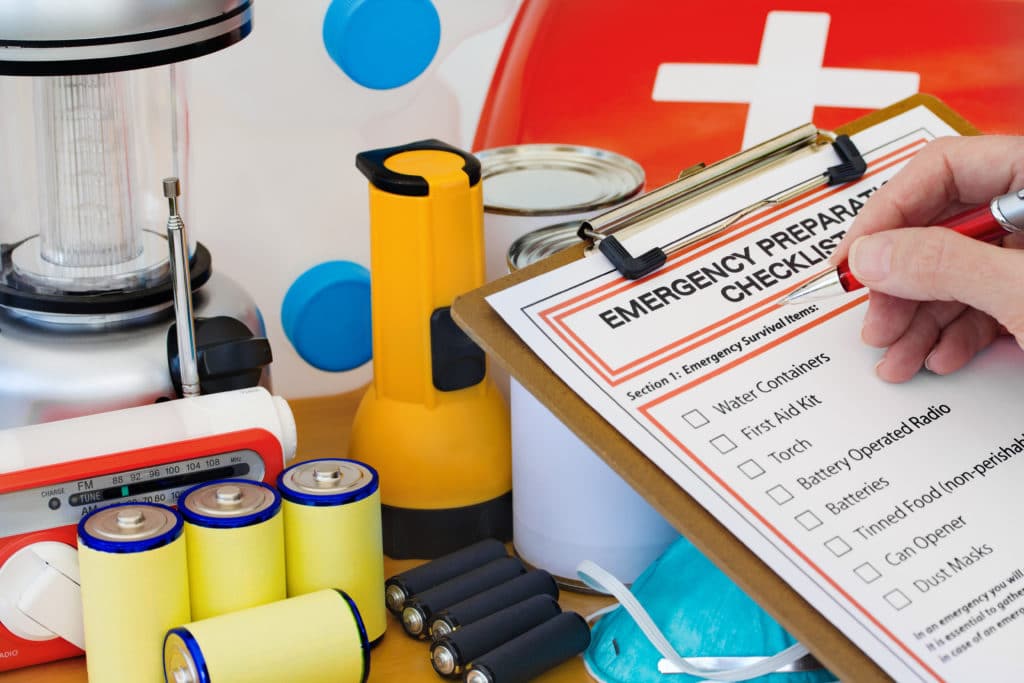
With the current events of the COVID – 19 (Corona Virus) pandemic, it’s important to make sure that you have an emergency plan in place for you and your family. It can be especially important for those with hearing loss, as most emergency plans do not have contingencies in place to support people with hearing loss.
Making sure you have your hearing devices and a backup plan, in case of emergency is just one of the strategies we will discuss. Here are tips in making an effective emergency plan for people with hearing loss.
Stay Informed
While you can prepare for most major catastrophes such as earthquakes, blizzards, or hurricanes, you can never be too sure about an unexpected crisis, like fire, water line damage, or in this case a heavily transmitted illness. In any case, the more information you have, the safer you can be. Make sure to sign up for email or text alerts for upcoming weather alerts, transportation disruptions, etc.
Create An Emergency Network
Designate at least two people (friends, family, caregivers, neighbors, coworkers) to be included in your emergency network. You may want different networks for home and work depending on how far apart they are. Consider including somebody from out of town to act as a communication relay incase the local landline phones are jammed.
The people in your network need to stay in touch during an emergency, have spare keys to each other’s homes, and know where to find emergency supplies. Your network must know about your hearing loss as well as your hearing devices, (i.e hearing aids, Roger Pens, FM transmitter, etc.) and the batteries or chargers required to operate them.
Plan Your Communication Options
For those with hearing loss, this may be the most crucial step. How will you communicate with your emergency network or medical personnel? In an emergency, your usual modes of communication may not be available so preparation is key. Make sure to have the following:
- For Sever hearing loss, Index cards with important phrases such as, “I wear hearing aids,” or “please face me and speak clearly as possible.” Keep a notepad and pen available too.
- Use social media to stay in touch. Facebook Safety Check, for example, allows you to indicate your status during an emergency, and updates you on the status of others.
- Make sure to download specialty health apps your smartphone that shows your emergency contacts, blood type and details about your hearing loss/devices on your phone’s lock screen making it
- visible without a password. You can search Apple iTunes or Google Play store to find these apps depending on your device platform, many of which are free.
Prepare Emergency Supply Kits
You will want to have two kits – one for your home and one portable kit you can take with you, should you need to evacuate your house. It is also a good practice to keep this kit in your vehicle, should something happen while you are in your car. Both kits will contain similar items, although quantity on certain items will vary based on your home and portable kit.
- Copies of important documents such as photo IDs, contact information for other family members or friends in your emergency network, and a medication list with dosages. Make sure to keep
- these items in a waterproof container.
- Flashlights with at-least one set of additional batteries, we recommend an additional pack. Having a whistle, bell, or some form of loud noise-generating tool to get someone’s attention.
- First Aid Supply Kit, including antiseptic cream, painkillers, bandages, and cleaning swabs.
- Hearing devices with spare batteries (again I would include an additional pack) in waterproof containers. Make sure to include back up devices and chargers, most importantly make sure they are fully charged!
The best offense is a good defense and being prepared is your greatest defense during an emergency. Start making your emergency plan using our helpful checklist which you can download and print off using the link below. Make sure to add any additional contingencies that cater to your specific needs and hearing loss. We hope you never have to use it, but if you do, you’ll know you are fully prepared.
Download our Emergency Supply Checklist here!
